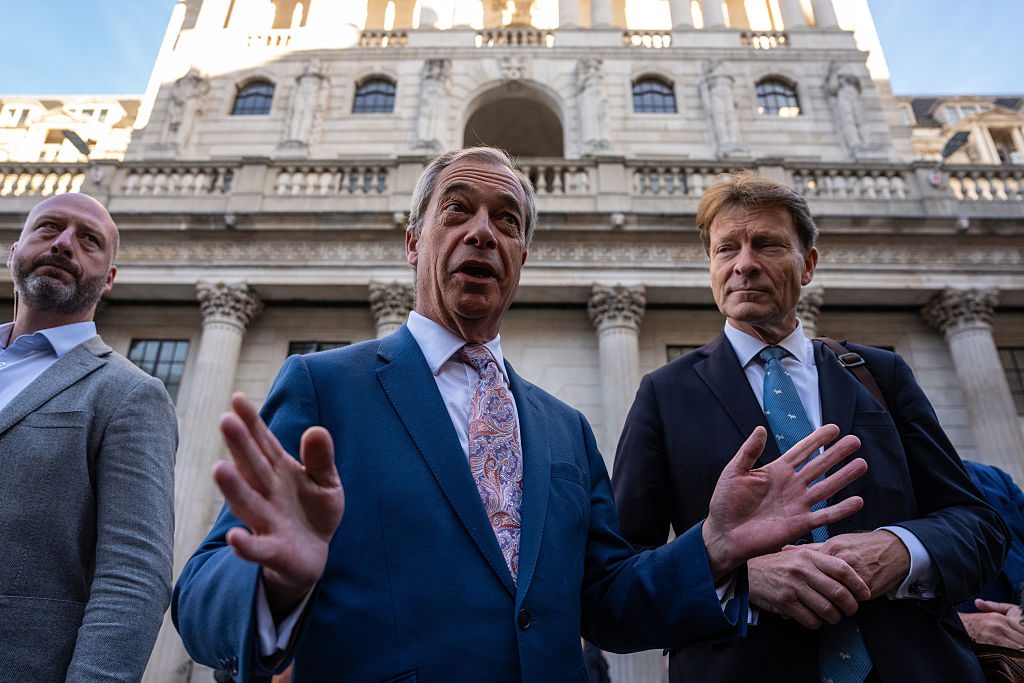Reform UK is reportedly stepping up its efforts to woo business. This week the Times reported that Nigel Farage is due to meet Sir Jim Ratcliffe, the billionaire chemicals magnate, merely weeks after the Reform leader met with Andrew Bailey, the Governor of the Bank of England.
Ratcliffe may well be open to Reform’s pitch, and with a personal fortune comfortably north of £20 billion, the Ineos CEO would certainly be a valuable donor — or even supporter. He has been fiercely critical of the government’s Net Zero policies, which would surely be quickly binned in the event that Farage formed a government.
But the broader question of whether or not Reform could become the next “party of business” is an interesting one, and Labour’s experiences give us a broad idea of how it would play out.
Prior to the general election, Labour put a lot of effort into impressing the business community. Rachel Reeves sought out meetings with City financiers and tried to persuade them that a Labour government would never allow the kind of Liz Truss-style meltdown that occurred under the Tories.
Since then, however, the backlash has been fierce. At one ConservativeHome panel I hosted at this week’s Tory conference in Manchester, Sasha Lord — a Labour donor and member who served for years as Andy Burnham’s Night Tsar — publicly called on Keir Starmer to resign.
Lord accused the Prime Minister of ignoring business. But I suspect many also feel tricked; they were promised an economically serious, business-friendly government and received instead, within months, a job-destroying hike in employers’ national insurance that seemed redolent of the very worst of old Labour.
Why did this happen? It wasn’t because Starmer and Reeves are hardcore socialists who deliberately lied about their intentions. Rather, it’s because they were both too timid to risk their poll lead by putting unpopular tax policies in their manifesto and, worse still, supremely complacent about the scale of the challenge facing them when they entered office. Labour sources say that the leadership genuinely thought that getting the Conservatives out and the grown-ups back in the room would somehow deliver growth.
All of this feels extremely plausible as a blueprint for how the first year of a Reform government would play out. Like Labour before 2024, Farage and his allies too often exhibit the same dangerous combination of cowardice and complacency. They shy away from difficult realities about the public finances whilst assuming that things like immigration can be fixed in short order.
Now that doesn’t make Reform particularly worse than the major parties. But being an established party hasn’t saved Labour, and a Farage government would have the additional disadvantage of being a new party with an unproven reputation and a predilection — in areas such as vaccines — towards crankery.
If Reform UK ever takes office, it will find itself in more or less the same position Reeves did: trapped between irresponsible promises, runaway spending obligations on things like the NHS, social care, and pensions, and a stagnant tax base. There won’t be nearly enough “woke waste” to service Reform’s promises, and bigger structural cuts to things like Civil Service numbers, whilst perfectly feasible, will prove more difficult and more time-consuming than expected. For example, redundancy packages and legal challenges could stifle those plans almost entirely.
That will leave a Reform chancellor having to find ways to balance the books — especially as the bond markets are likely to be very jumpy about having a new and wholly unproven party at the helm. That in turn means more broken promises, be it in the form of unpopular spending cuts, unpopular tax rises, or both.











Join the discussion
Join like minded readers that support our journalism by becoming a paid subscriber
To join the discussion in the comments, become a paid subscriber.
Join like minded readers that support our journalism, read unlimited articles and enjoy other subscriber-only benefits.
Subscribe